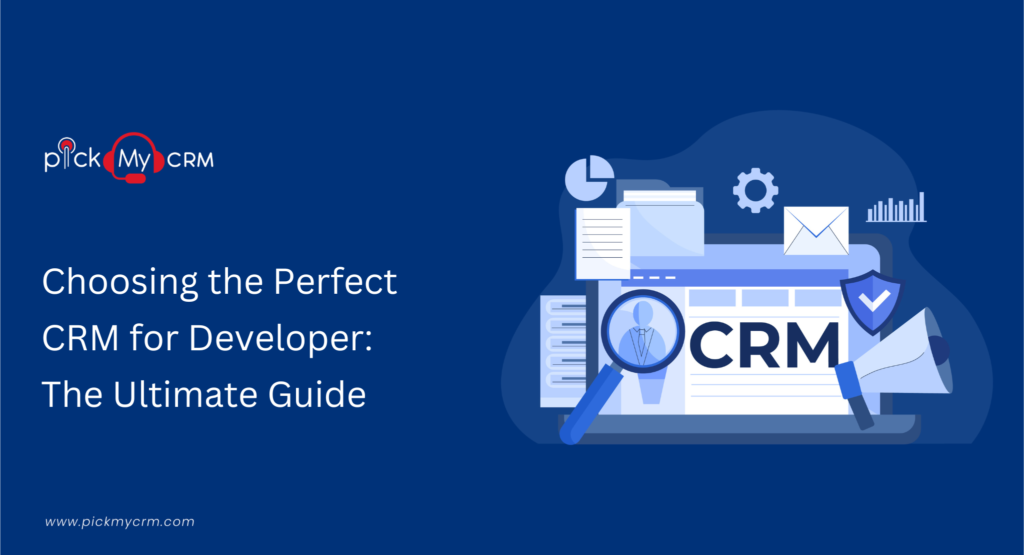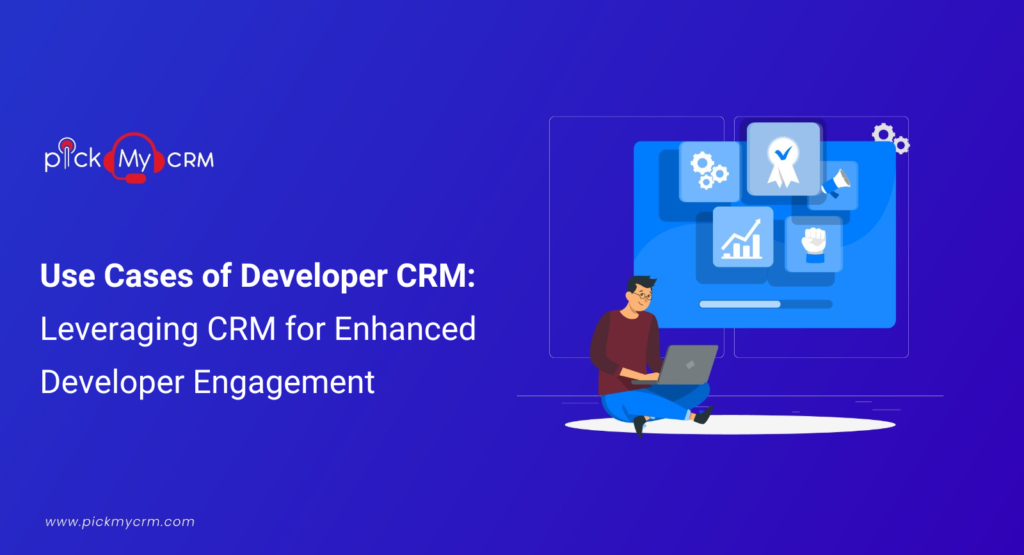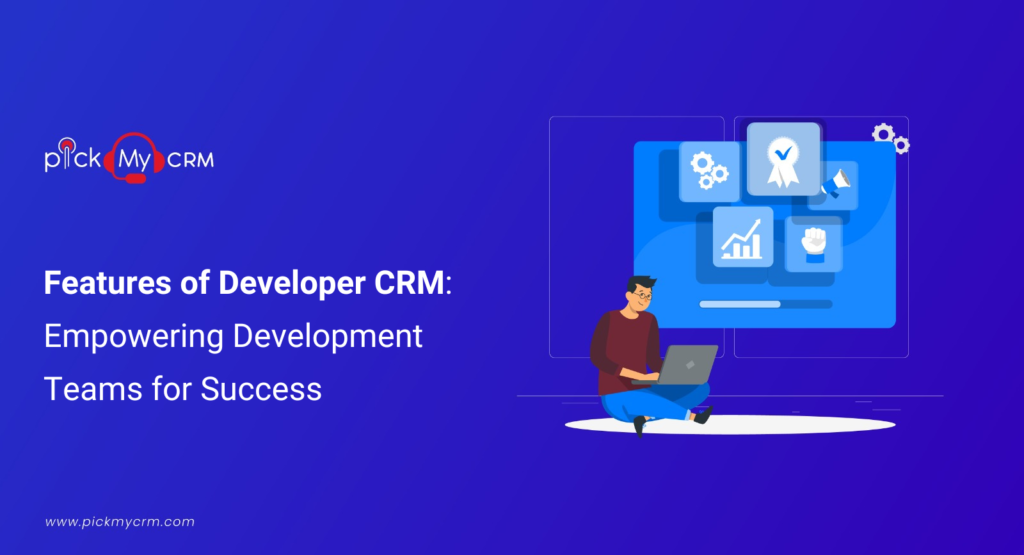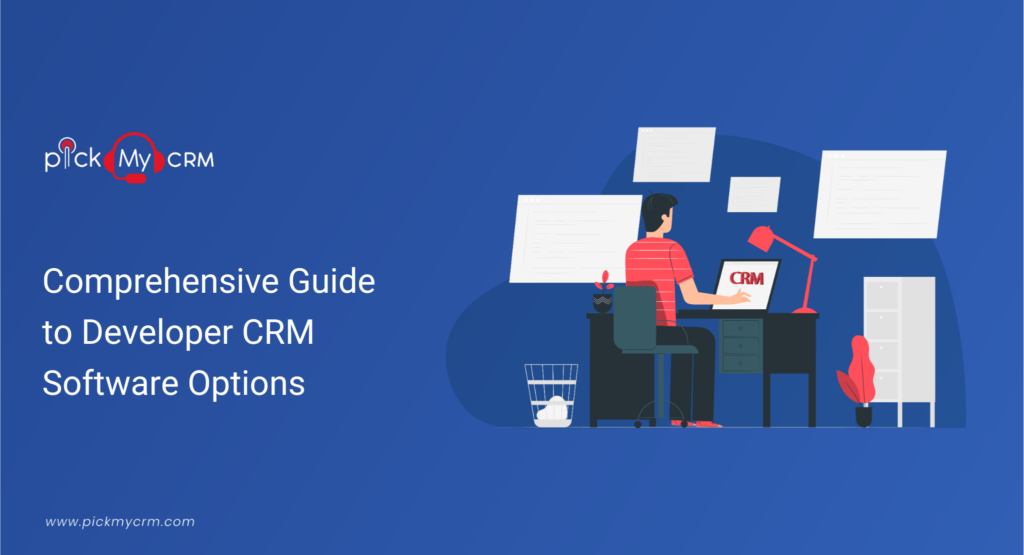Choosing the Perfect CRM for Developers: The Ultimate Guide
Why Do You Need a Developer's CRM?
A CRM (Customer Relationship Management) system is essential for developers as it enables them to effectively manage client interactions, streamline project workflows, and enhance productivity. It is a centralized platform to track and organize customer information, tasks, and project details, ensuring efficient collaboration and improved customer experiences.Market Growth and Significance
Notably, in 2023, the CRM market reached a staggering $96.5 billion and is projected to continue its upward trajectory, reaching new heights by 2027. It highlights the pivotal role CRM plays for developers and businesses alike. Recent statistics reveal just how crucial CRM has become in the world of development, According to a survey by TechRepublic, 84% of development teams consider CRM software essential for managing client relationships and project workflows. Now, let's delve deeper into choosing the perfect CRM.16 Essential Steps to Choose a Developer's CRM
Identify Your Goals
Clearly define your objectives and the specific outcomes you want to achieve with a CRM system for developers. It will help you align your selection process with your desired results.Understand Developer Needs
Gain a thorough understanding of the needs, workflows, and challenges faced by developers in your organization. Consider their collaboration requirements, integration preferences, and reporting needs.Research Developer-Focused CRMs
Seek out CRM systems explicitly designed for developers. Conduct thorough research to discover CRM Options equipped with Features and functionalities crafted to elevate the developer's user experience. Assess Integration Capabilities Developers rely on a range of tools and platforms. Evaluate the CRM's integration capabilities with popular developer tools such as code repositories, project management systems, version control systems, and communication platforms. Ensure seamless integration to streamline workflows.Customization and Flexibility
Developers often have unique workflows and preferences. Look for a CRM that offers extensive customization options, allowing developers to adapt the system to their specific needs. Consider features like customizable fields, workflows, and automation capabilities.Collaboration and Communication Features
Effective collaboration is crucial for developers. Evaluate the CRM's collaboration features, such as shared project spaces, task assignments, real-time updates, and integrated communication tools. Ensure that the CRM promotes seamless teamwork and efficient communication within development projects.Reporting and Analytics
Developers rely on data and analytics to track project progress, measure code quality, and make informed decisions. Assess the CRM's reporting and analytics capabilities, including customizable dashboards, advanced filtering options, and relevant metrics for developers.Mobile Accessibility
Developers often work on the go. Consider whether the CRM offers mobile apps or a responsive web interface that enables developers to access and update information from their mobile devices. Mobile accessibility ensures continuous productivity and collaboration.Scalability and Flexibility
Choose a CRM that can scale alongside your organization's growth. Consider factors like data storage capacity, user scalability, and pricing structures. Ensure that the CRM can accommodate your expanding team and evolving requirements.User Interface and Experience
A user-friendly interface and intuitive user experience contribute to CRM adoption. Evaluate the CRM's interface design, ease of navigation, and overall user experience. An intuitive CRM minimizes the learning curve and maximizes developer productivity.Security and Compliance
Developers handle sensitive data, and compliance with security standards may be necessary. Assess the CRM's security features, data encryption, access controls, and compliance certifications to Ensure the Protection of your data.Vendor Reputation and Support
Research the reputation of CRM vendors. Look for customer reviews, testimonials, and case studies to gauge the reliability and satisfaction of other developer teams. Consider the Quality of support Provided by the vendor, including documentation, training, and ongoing assistance.Pricing and ROI
Evaluate the pricing structure of the CRM, considering both upfront costs and ongoing expenses. Assess and compare the features and value propositions Provided by different CRM options to determine the return on investment (ROI).Free Trials and Demos
Utilize the opportunities presented by CRM providers' free trials or demos. Test the CRM with real-world scenarios to evaluate its usability, performance, and compatibility with your existing workflows. Involve developers in the testing process to gather their feedback.Implementation and Onboarding Process
Consider the implementation and onboarding process of the CRM. Assess the Level of support provided by the vendor during implementation, training, and data migration. Ensure a smooth transition and minimize disruption to your development operations.Reviews and Reputation
Before finalizing your decision, research customer reviews and the reputation of the CRM provider. Look for feedback from other developer teams to gain insights into their experiences with the CRM. A reputable and reliable CRM provider is more likely to offer quality support, regular updates, and ongoing improvements to the platform. By following these steps, you can navigate the process of selecting a CRM that meets the specific needs of developers in your organization. Choosing the right CRM will empower your developers, streamline operations, and enhance collaboration and client relationship management.Comparing CRM Options
Now that you know what to look for, let's evaluate some CRM Software options tailored for developers, HubSpot CRM HubSpot offers a user-friendly CRM with robust customization options. It integrates seamlessly with popular development tools and provides in-depth analytics. Salesforce Salesforce is a highly scalable CRM solution with extensive customization capabilities. Its AppExchange marketplace offers a plethora of development-focused apps. Zoho CRM Zoho CRM is known for its affordability and ease of use. It offers features like Workflow automation and Mobile accessibility, making it suitable for small to medium-sized development teams. Pipedrive Pipedrive is a CRM designed for sales, but its simplicity and visual pipeline management make it appealing to developers who prioritize project tracking.Making the Final Decision: Choose the Right Developer's CRM
To arrive at the ultimate decision, take into account the subsequent steps, Trial Period: Most CRMs offer a trial period. Take advantage of this to test how well the CRM aligns with your needs. User Feedback: Seek input from your development team, as they will be the primary users. Their feedback is invaluable. Cost Evaluation: Compare pricing plans and choose one that aligns with your budget while offering the necessary features. Negative Perspective: Common Pitfalls to Avoid While we've discussed the positive aspects of CRM selection, it's essential to be aware of potential pitfalls. Some common issues developers may encounter with CRMs include:- Overcomplication: Selecting a CRM with more features than necessary can lead to confusion and decreased productivity.
- Resistance to Adoption: If your development team is not on board with the new CRM, it can hinder its effectiveness.
- Data Migration Challenges: Migrating existing data to a new CRM can become intricate and time-consuming when not adequately planned.
- Cost Overruns: Be cautious of hidden fees and scalability costs that can inflate your CRM budget.




